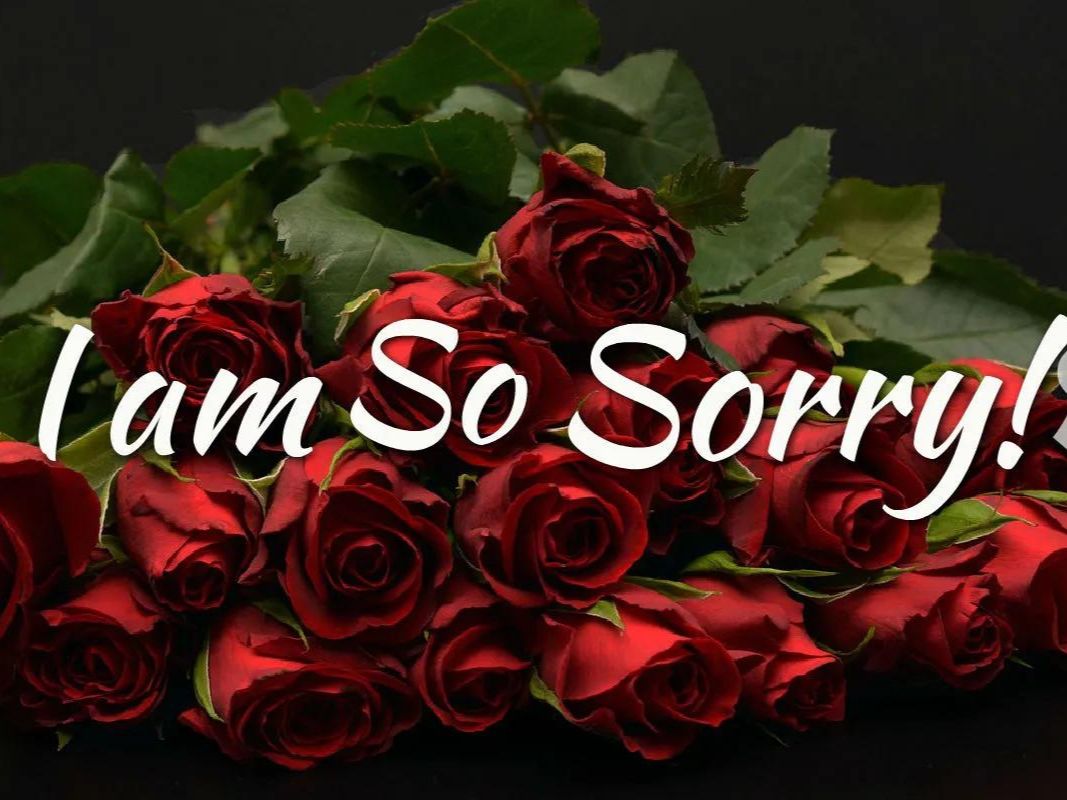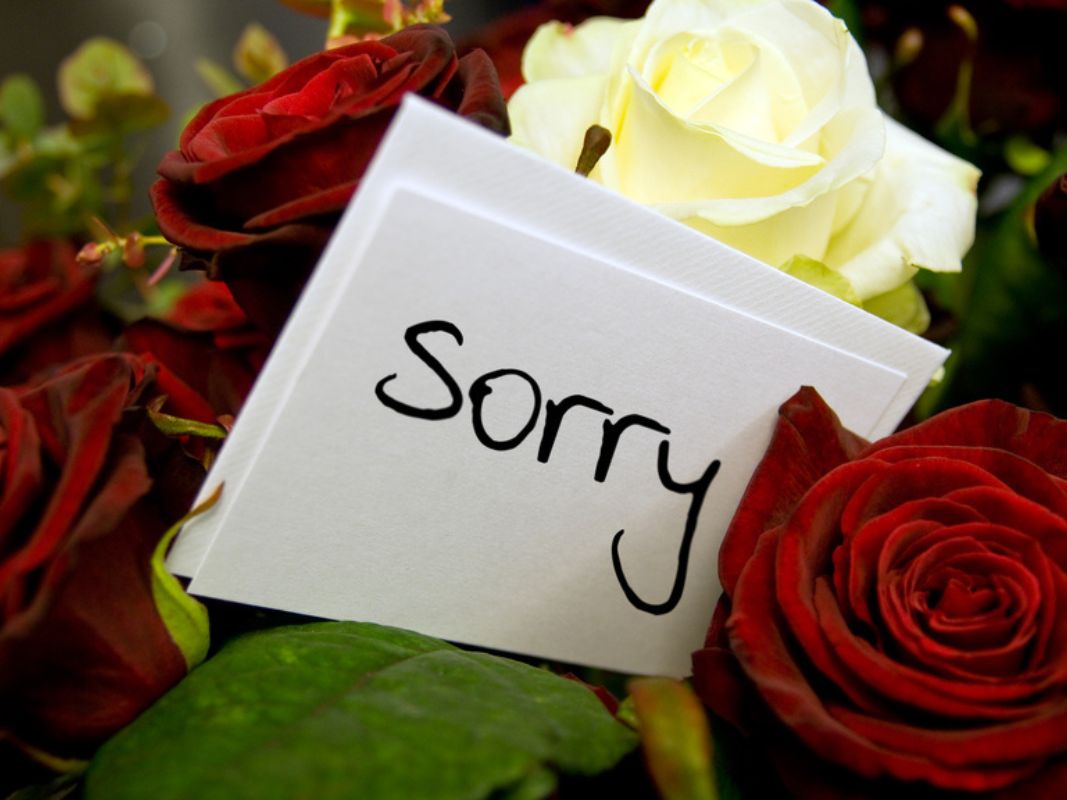
Blog
70+ Effective Ways to Reply to Sorry in Any Situations

reply to sorry When someone says “sorry,” it’s often a genuine attempt to acknowledge a mistake, express regret, or seek reconciliation. How you respond to an apology can significantly impact your relationship with the person offering it. Whether in a casual conversation, a professional setting, or a deeply personal moment, knowing how to reply to sorry with understanding, forgiveness, or even humor can help mend bonds and foster mutual respect.

In this guide, we’ll explore various ways to respond to “sorry,” categorized by context, to ensure you have the right words for every situation.
The Psychology of an Apology reply to sorry
Apologies are more than just words—they’re a crucial element of human interaction that help repair relationships, reduce tension, and demonstrate empathy. When someone apologizes, they’re often seeking more than just forgiveness; they’re looking for validation, understanding, and reassurance that the relationship can move forward.
A well-considered reply for sorry can:
- Reaffirm the Relationship: By accepting an apology, you’re often signaling that the relationship is valued and worth maintaining.
- Provide Closure: An appropriate response can help both parties feel that the issue is resolved, preventing lingering resentment.
- Encourage Personal Growth: By responding thoughtfully, you can inspire the other person to reflect on their actions and learn from the experience.
Casual and Friendly reply to sorry
In everyday conversations, a casual and forgiving tone is often the best approach. Here are some friendly ways to reply to sorry:
- No worries! It’s all good. – A relaxed way to let the other person know that everything is okay.
- It’s okay, don’t worry about it. – Reassures them that there are no hard feelings.
- No big deal, we’re all good. – Downplays the mistake and moves on.
- All good! Let’s forget about it. – Encourages moving past the incident.
- It happens! No harm done. – Acknowledges the mistake but dismisses any lasting impact.
- Don’t sweat it, everything’s fine. – Casual and comforting, letting them know it’s not a problem.
- It’s cool, no problem at all. – A friendly and easy-going response.
- No worries, everyone makes mistakes. – Acknowledges that mistakes are human and forgivable.
- Forget about it, we’re good. – Clears the air in a relaxed manner.
- Thanks for apologizing, but it’s all fine. – Appreciates their apology while assuring them that it’s okay.
- We’re all human, it’s no big deal. – Reminds the person that everyone makes mistakes.
- All is forgiven, let’s move on! – Encourages focusing on the future rather than the past.
- I wasn’t upset, but I appreciate you saying sorry. – Let them know you weren’t bothered, but values their apology.
- No worries at all! It’s forgotten. – Emphasizes that the incident is in the past.
- Don’t give it another thought, everything’s fine. – Encourages them to let go of any guilt.
Professional and Formal Reply to sorry
In a professional or formal setting, it’s important to maintain a tone that is respectful and composed. Here are some replies that are suitable for workplace interactions or formal communications:
- Thank you for your apology. Let’s move forward. – Acknowledges the apology and suggests moving on.
- I appreciate your apology. Let’s focus on the next steps. – Keeps the conversation productive and forward-looking.
- No problem. Let’s ensure we learn from this. – A forgiving yet constructive response.
- Thank you for acknowledging that. Let’s continue.- Appreciates their honesty and readiness to move on.
- Your apology is noted. Let’s proceed with the work. – A formal acceptance that keeps things professional.
- I appreciate your honesty. Let’s work together to avoid this in the future. – Encourages collaboration and improvement.
- Thank you for your sincerity. Let’s refocus on the task at hand. – A polite way to accept the apology and get back to work.
- It’s important that we move forward from this. Thank you for your apology. – Suggests closure and a focus on the future.
- I understand, and I appreciate your apology. Let’s keep going. – Acknowledges the apology and signals readiness to move on.
- Thank you for apologizing. Let’s ensure this is a learning moment for us all. – Emphasizes growth and learning in a professional context.
- Your apology is appreciated. Let’s use this experience to strengthen our team. – Encourages team cohesion and improvement.
- I respect your willingness to apologize. Let’s continue working towards our goals. – Combines respect with a forward-looking mindset.
- Thank you for addressing this. Let’s ensure we avoid similar issues in the future. – Focuses on prevention and improvement.
- I appreciate your efforts to resolve this. Let’s move forward with our work. – Keeps the conversation productive and positive.
- Thank you for your transparency. Let’s continue to collaborate effectively. – Values honesty and encourages continued teamwork.
Thoughtful and Heartfelt Reply to sorry
Sometimes, the apology is from someone close to you, and you want to reply in a way that reflects the depth of your relationship. Here are some thoughtful and heartfelt responses:
- Thank you for saying that. It means a lot to me. – Shows that you value their apology deeply.
- I appreciate your apology. It really shows you care. – Reflects gratitude for their concern and effort.
- Your apology is important to me. Thank you for being honest. – Acknowledges the sincerity of their words.
- I forgive you. Let’s move past this together. – Offers forgiveness and a path forward.
- Thank you for apologizing. It’s not easy to admit when we’re wrong. – Recognizes the difficulty of apologizing and appreciates it.
- Your apology means a lot, and I’m ready to move forward. – Combines gratitude with a willingness to move on.
- I can see you’re truly sorry, and that means a lot to me. – Acknowledges the depth of their apology.
- Thank you for your apology. I value our relationship, and I’m glad we can work through this. – Expresses the importance of the relationship and the willingness to work things out.
- It’s okay, I know it wasn’t intentional. I appreciate you saying sorry. – Shows understanding and forgiveness.
- Your words mean a lot to me. I’m glad we can talk about this. – Emphasizes the importance of communication and resolution.
- Thank you for apologizing. I know it’s not easy, and it means a lot to me. – Values the courage it takes to apologize.
- I appreciate your apology. It’s moments like these that strengthen our bond. – Reflects on the positive impact of resolving conflicts.
- Your honesty is refreshing. Thank you for apologizing, and let’s move forward together. – Values their sincerity and looks to the future.
- Thank you for your apology. I value our relationship and am glad we can be open with each other. – Reflects on the strength of the relationship.
- It means a lot that you apologized. Let’s continue to build on our relationship. – Focuses on growth and building a stronger connection.
Fun and Light-hearted Reply to sorry
If the situation allows for a bit of humor or light-heartedness, a playful response can help ease any tension. Here are some fun ways to reply to sorry:
- No biggie! I forgive you… this time! – Adds a playful tone to the forgiveness.
- It’s all good! Just don’t let it happen again! (Kidding!) – Lightens the mood with a friendly joke.
- Apology accepted! Now, where’s my coffee? – Adds a humorous twist to the situation.
- You’re off the hook! Just this once. – Playful and forgiving.
- No worries! I’ve done worse! – Humorous self-deprecation to ease the situation.
- You’re forgiven… but only if you buy me lunch! – A playful way to accept the apology.
- It’s cool, I was going to blame the dog anyway! – Light-hearted and funny.
- All good! Just don’t forget my birthday next time! – Adds humor to the acceptance.
- You’re lucky I’m in a forgiving mood today! – Playful and teasing.
- It’s fine! Just owe me one, okay? – Friendly and light-hearted.
- No problem! You can make it up to me with chocolate. – Adds a playful demand for something sweet.
- Don’t worry, I’m still your friend… for now! – Teasing and fun.
- Apology accepted! Now, let’s get ice cream! – Turns the apology into a fun activity.
- You’re off the hook! But just this once! – Playfully warns them not to repeat the mistake.
- All good! Just remember, I’m keeping score! (Kidding!) – Light-hearted and teasing.
Reflective and Insightful Reply to sorry
For situations where the apology has more depth, or where it prompts reflection, these responses can show that you’ve taken the time to consider the apology:
- Thank you for apologizing. It’s made me think about how we can improve things moving forward. – Encourages growth and reflection.
- I appreciate your apology. It’s given me a lot to think about. – Shows that you’re considering their words carefully.
- Your apology means a lot. It’s a good reminder of how important our relationship is. – Reflects on the value of the relationship.
- Thank you for saying sorry. It’s helped me see things from your perspective. – Shows that the apology has broadened your understanding.
- I appreciate your honesty. It’s made me realize how we can both do better. – Encourages mutual growth and improvement.
- Thank you for your apology. It reminded me of the importance of communication. – Reflects on the value of open dialogue.
- Your apology has made me think about how we can strengthen our relationship. – Focuses on using the apology as a stepping stone for improvement.
- I’m grateful for your apology. It’s a good opportunity for us to learn and grow. – Emphasizes the positive potential of the situation.
- Thank you for your words. It’s made me reflect on how we can both move forward positively. – Encourages forward-thinking and growth.
- I appreciate your apology. It’s given me a new perspective on our relationship. – Shows that the apology has deepened your understanding.
- Thank you for your apology. It’s helped me see things in a new light. – Reflects on the impact of the apology on your perspective.
- Your apology has made me realize the importance of forgiveness in our relationship. – Highlights the role of forgiveness in maintaining strong relationships.
- I’m glad you apologized. It’s a good reminder of how we can support each other better. – Focuses on mutual support and understanding.
- Thank you for apologizing. It’s made me think about how we can avoid similar issues in the future. – Reflects on prevention and improvement.
- I appreciate your apology. It’s a good opportunity for us to grow closer. – Focuses on strengthening the bond.
The way you reply for sorry can significantly affect the outcome of the conversation and the future of your relationship with the other person. Whether you choose to respond casually, professionally, thoughtfully, or with humor, the key is to be sincere and mindful of the context.
Remember, accepting an apology doesn’t just benefit the person who said sorry, it also helps you let go of any negative feelings and move forward with a clean slate. Thoughtful communication is the cornerstone of healthy relationships, and knowing how to respond to an apology is an essential part of that process.
And while words can mend hearts, the right gesture can make those words even more impactful. That’s where Kiricard comes in. Kiricard offers beautifully crafted pop-up cards that add a unique touch to any apology, thank you, or heartfelt message. Whether you’re looking to apologize in style or simply want to brighten someone’s day, Kiricard’s designs are perfect for making your words stand out. With a wide range of themes and occasions, Kiricard has the perfect card to help you express your thoughts in the most meaningful way.
So next time someone says “sorry,” you’ll be ready with a reply to sorry that’s just right for the situation and maybe even a beautiful card from Kiricard to make it truly unforgettable. Whether you’re mending a friendship, smoothing over a professional hiccup, or sharing a laugh, the right reply can make all the difference.





 Christmas
Christmas Father’s Day
Father’s Day Valentine’s Day
Valentine’s Day Easter
Easter Thanksgiving
Thanksgiving Halloween
Halloween
 Birthday
Birthday Wedding
Wedding Anniversary
Anniversary Graduation
Graduation Baby Shower
Baby Shower House Warming
House Warming
 For Him
For Him For Her
For Her For Kids
For Kids
 Floral
Floral Animals
Animals Trees
Trees Architecture
Architecture Vehicle
Vehicle LGBTQ+
LGBTQ+ Just Because
Just Because
 Pop-up Box
Pop-up Box Pop-up Stand
Pop-up Stand